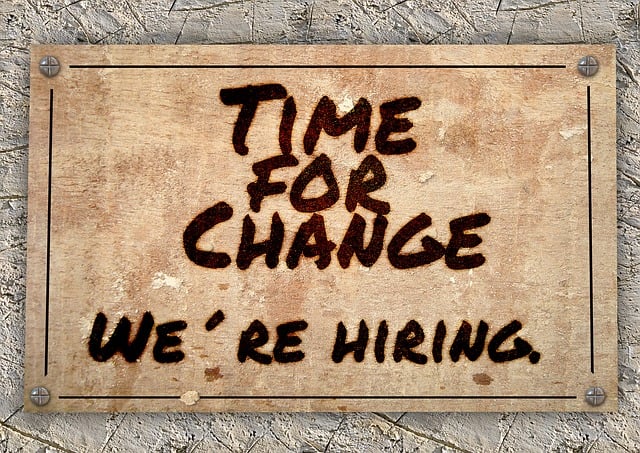Staying compliant with labor laws is crucial for businesses to protect workers' rights, avoid legal consequences, and maintain a positive reputation. This involves understanding federal, state, and local regulations on wage hours, anti-discrimination, leave, accommodation, and recordkeeping. Expert legal aid offers strategic guidance, helping organizations conduct audits, implement fair policies, train managers, and establish open communication channels to ensure effective labor law compliance, which is vital for a positive work environment and organizational success in today's digital age.
In today’s complex business landscape, navigating employment and labor matters requires expert legal support. This comprehensive guide delves into critical aspects of labor law compliance, offering essential basics for businesses aiming to stay afloat legally. We explore strategies for preventing and resolving employment disputes, ensuring fair labor practices, and the transformative role of legal professionals in revolutionizing employment rights. By understanding these key areas, businesses can foster a robust and compliant work environment.
- Understanding Labor Law Compliance: Essential Basics for Businesses
- Navigating Employment Disputes: When Expert Legal Support is Crucial
- Strategies for Ensuring Fair Labor Practices: A Comprehensive Guide
- The Role of Legal Professionals in Revolutionizing Employment Rights
Understanding Labor Law Compliance: Essential Basics for Businesses

Staying compliant with labor laws is a cornerstone of successful business operations. Labor law compliance involves adhering to federal, state, and local regulations that protect workers’ rights and ensure fair treatment in employment practices. This includes understanding wage and hour requirements, anti-discrimination policies, leave and accommodation laws, and recordkeeping mandates. Non-compliance can lead to significant legal consequences, financial penalties, and damage to a company’s reputation.
Businesses must proactively educate themselves on these regulations, implement robust internal policies, and regularly update practices to keep pace with changing labor law landscapes. Engaging expert legal support for employment and labor matters is a strategic move that ensures businesses not only meet current compliance standards but also navigate future regulatory shifts effectively. Professional guidance can help streamline processes, mitigate risks, and foster a culture of ethical and compliant employment practices.
Navigating Employment Disputes: When Expert Legal Support is Crucial

In the complex landscape of employment and labor laws, disputes can arise from various issues—from discrimination complaints to contract disagreements. For individuals and businesses alike, navigating these legal intricacies without proper guidance can be a challenging labyrinth. This is where expert legal support becomes crucial; it’s not just beneficial but often essential for ensuring labor law compliance.
Professional legal aid provides a strategic approach to employment disputes, offering insights into the nuances of labor regulations. These experts can help in drafting clear, legally sound contracts, mediating conflicts, and representing clients before administrative bodies or in courts. Their guidance is invaluable when dealing with matters that could significantly impact an organization’s reputation and financial health.
Strategies for Ensuring Fair Labor Practices: A Comprehensive Guide

Ensuring fair labor practices is paramount for any organization, and a comprehensive guide should be tailored to navigate the intricate web of labor laws. The first step involves conducting thorough audits to identify areas where your company may fall short in terms of compliance. This includes verifying wages, hours worked, and classifying employees correctly under labor law standards. Regular reviews of hiring, promotion, and termination policies are essential to prevent discrimination and ensure equal opportunities for all workers.
A strategic approach to labor law compliance involves training managers and supervisors extensively on these regulations. Educating the leadership team enables them to make informed decisions, fostering a culture where every employee is treated with fairness and respect. Additionally, establishing clear communication channels allows employees to voice concerns without fear of retaliation, ensuring any issues are promptly addressed and resolved.
The Role of Legal Professionals in Revolutionizing Employment Rights

In today’s digital era, the role of legal professionals is more crucial than ever in revolutionizing employment rights and fostering a fair and equitable workplace. They play a pivotal role in navigating the complex landscape of labor law compliance, ensuring that both employers and employees understand their rights and obligations. By delving into the intricate details of various laws and regulations, these experts enable organizations to avoid costly legal pitfalls and maintain a positive work environment.
Moreover, legal professionals act as game changers by advocating for workers’ rights and providing invaluable support in employment and labor matters. They help in drafting and reviewing contracts, ensuring that they are fair and compliant with relevant labor laws. Additionally, they offer guidance on hiring practices, discrimination prevention, and harassment policies, fostering a more inclusive and respectful workplace. This specialized knowledge empowers businesses to create sustainable practices and avoid legal disputes, ultimately enhancing their reputation and long-term success.
In navigating the complex landscape of employment and labor matters, businesses and individuals alike can greatly benefit from expert legal support. As discussed, understanding labor law compliance is paramount for fair practices, while efficient dispute navigation ensures a harmonious work environment. The strategies outlined in this article serve as a comprehensive guide, empowering entities to safeguard their rights and responsibilities. Ultimately, the role of legal professionals in revolutionizing employment rights cannot be overstated, acting as crucial navigators through the intricate tapestry of labor law compliance.
